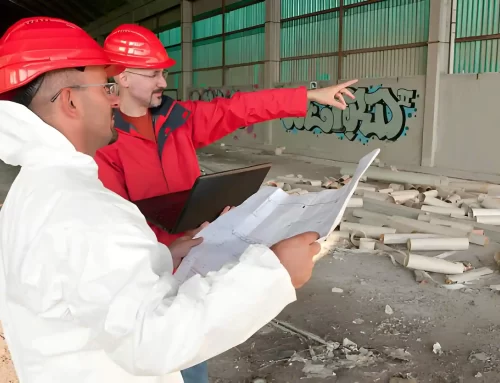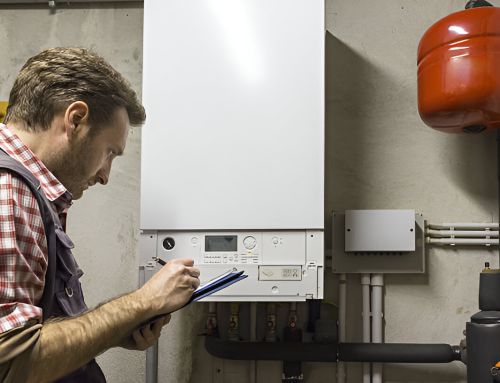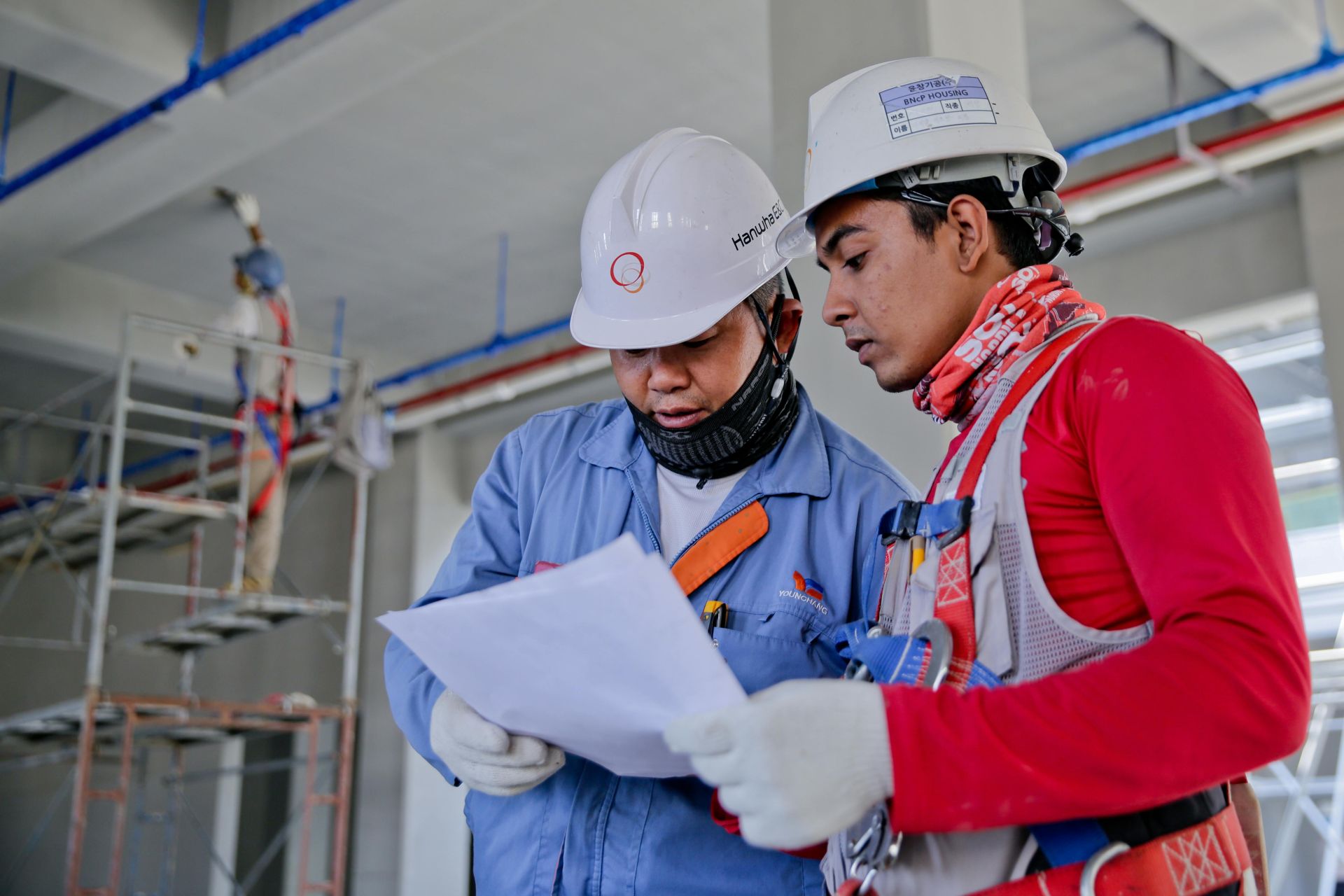
Understanding the significance of a Gas Safety Certificate and boiler service is essential for both landlords and homeowners. These services play a pivotal role in ensuring the safety and efficiency of gas appliances. However, many remain unaware of the specific requirements and differences between a gas safety check and a boiler service. Exploring these distinctions can reveal vital information that impacts safety and compliance. What are the implications for tenants and landlords alike?
Key Takeaways
- A Gas Safety Certificate verifies the safety of gas appliances and is legally required for landlords and homeowners, renewed annually.
- Boiler servicing ensures efficient operation and safety by cleaning and testing components, while gas safety checks focus on leak prevention and appliance functionality.
- Landlords must conduct annual gas safety checks, maintain inspection records, and share them with tenants to comply with legal requirements.
- Common issues like gas leaks and faulty thermostats can be identified through routine maintenance, enhancing safety and appliance longevity.
- Booking a qualified Gas Safe registered engineer and preparing your property are essential steps for effective service and compliance with safety regulations.
What Is a Gas Safety Certificate and Why Is It Important?
A Gas Safety Certificate is an essential document that verifies the safety and proper functioning of gas appliances within a property. This certificate is typically issued after a qualified engineer conducts a thorough inspection of various gas installations, including boilers, cookers, and fireplaces.
The primary importance of this certificate lies in its role in ensuring the safety of residents and preventing potential hazards such as gas leaks or carbon monoxide poisoning.
Landlords are legally required to obtain a Gas Safety Certificate for their rental properties and must renew it annually. Failure to comply can result in severe penalties.
Additionally, having this certificate can provide peace of mind to tenants, knowing that their living environment is safe. Overall, a Gas Safety Certificate not only fulfils legal obligations but also promotes responsible property management and enhances the well-being of occupants by ensuring the safe operation of gas appliances.
The Difference Between a Boiler Service and a Gas Safety Check
Understanding the difference between a boiler service and a gas safety check is vital for homeowners and landlords alike.
A boiler service is a thorough examination of the boiler’s components, guaranteeing it operates efficiently and safely. This process typically involves cleaning, testing, and adjusting parts such as the burner, heat exchanger, and flue. The goal is to enhance performance and prolong the boiler’s lifespan.
In contrast, a gas safety check focuses specifically on the safety of gas appliances, including the boiler. This check verifies that appliances are correctly installed, functioning safely, and free from gas leaks. It also includes testing the flue for proper ventilation.
While both services are important for maintaining a safe and efficient heating system, they serve distinct purposes. Homeowners and landlords should prioritise both to make sure their properties remain safe and compliant with regulations.
Gas Safety Certificate and Boiler Service for Homeowners
Homeowners are often required to obtain a Gas Safety Certificate, which verifies that all gas appliances, including boilers, are safe and compliant with legal standards. This certificate is essential for ensuring the safety of residents and preventing potential hazards associated with gas appliances.
A qualified Gas Safe registered engineer conducts the inspection, evaluating the installation, ventilation, and functioning of each appliance.
In addition to the Gas Safety Certificate, regular boiler servicing is important for maintaining peak performance and prolonging the life of the boiler. A thorough service includes checking for leaks, cleaning components, and ensuring efficient operation.
Homeowners should schedule these services annually to stay compliant with regulations and safeguard their homes.
Ultimately, both the Gas Safety Certificate and boiler service are critical responsibilities for homeowners, contributing to a safe living environment and ensuring peace of mind regarding gas appliance safety.
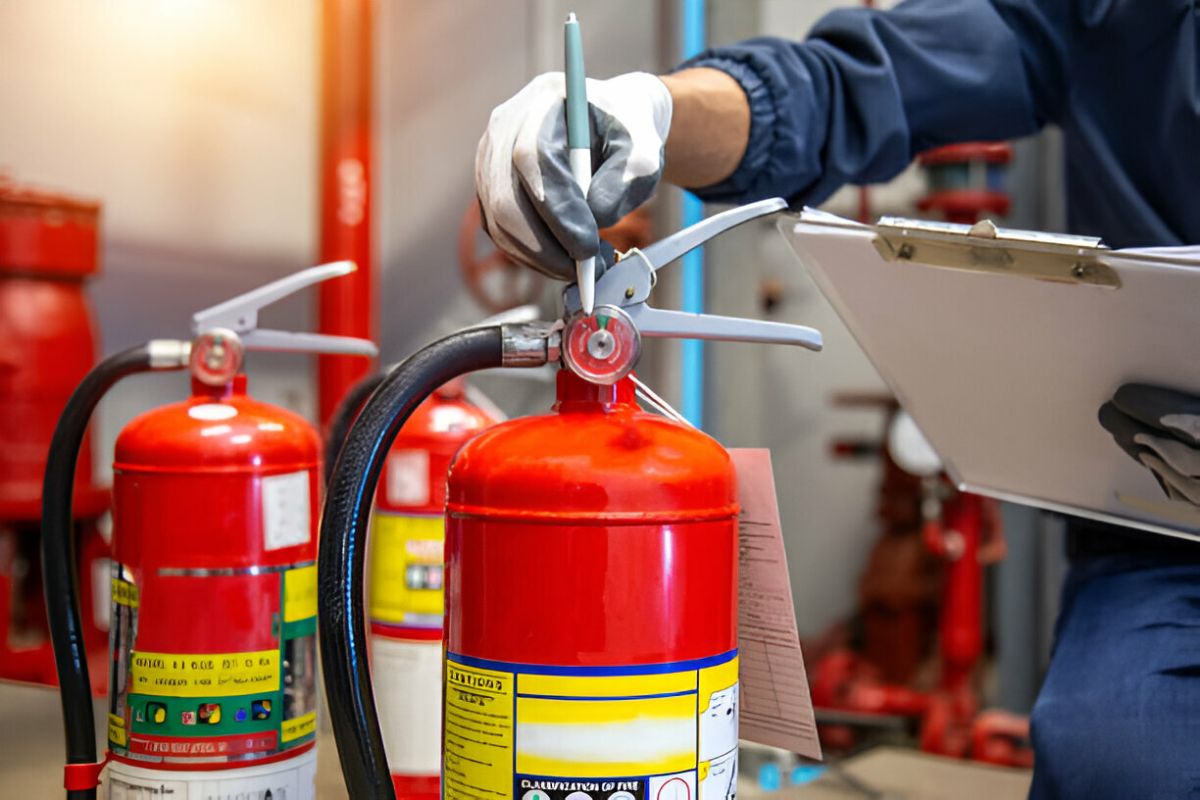
Common Issues Found During a Gas Safety Certificate and Boiler Service
While conducting a Gas Safety Certificate and boiler service, several common issues may arise that can compromise the safety and efficiency of gas appliances. Identifying these problems early is vital for guaranteeing safe operation.
- Gas Leaks: Undetected leaks can pose serious health risks and may lead to explosions. Regular checks can prevent disasters.
- Faulty Thermostats: Malfunctioning thermostats can cause inconsistent heating, leading to discomfort and increased energy bills.
- Blocked Vents: Obstructed flues or vents can hinder proper gas flow, resulting in dangerous carbon monoxide buildup.
These issues highlight the importance of routine maintenance and safety checks. Addressing them promptly not only protects the occupants but also enhances the longevity of the appliances.
Homeowners should prioritise these services to guarantee a safe living environment and avoid potentially catastrophic situations.
Gas Safety Certificate and Boiler Service Requirements for Rental Properties
What are the essential requirements for obtaining a Gas Safety Certificate and conducting a boiler service in rental properties?
Landlords are legally obligated to guarantee the safety of gas appliances, pipework, and flues in their rental properties. The Gas Safety (Installation and Use) Regulations 1998 mandate that a qualified Gas Safe registered engineer conduct an annual gas safety check. This inspection must cover all gas appliances, confirming they are functioning safely and efficiently.
Additionally, landlords must maintain records of inspections, providing tenants with a copy of the gas safety certificate within 28 days of the check.
As for boiler servicing, while not legally required annually, it is highly recommended to prevent breakdowns and guarantee longevity. Regular maintenance helps identify potential issues early, safeguarding tenants and guaranteeing compliance with safety regulations.
Therefore, adherence to these requirements is vital for both legal compliance and tenant safety.
Gas Safety Certificate and Boiler Service Explained for Beginners
Understanding the importance of a Gas Safety Certificate and boiler service is essential for anyone involved in rental properties.
These elements not only guarantee compliance with legal requirements but also protect the safety and well-being of tenants.
Here are three key reasons to prioritise these services:
- Safety Assurance: Regular checks can prevent dangerous gas leaks and potential explosions, safeguarding lives.
- Legal Compliance: Landlords are legally obligated to provide a valid Gas Safety Certificate, avoiding hefty fines and legal issues.
- Property Value: Well-maintained boilers and safety certificates can enhance property value and attract responsible tenants.
Gas Safety Certificate and Boiler Service: What Tenants Should Know
Tenants play an essential role in ensuring their living environments are safe and compliant with regulations regarding gas appliances. Tenants need to understand that landlords are legally obligated to provide a valid Gas Safety Certificate and boiler service, which confirms that all gas appliances have been inspected and are safe to use. This certificate must be renewed annually and should be presented to tenants upon request.
Additionally, tenants should be aware of the necessity of regular boiler servicing. While the responsibility for this often lies with the landlord, tenants can encourage timely maintenance and report any issues promptly.
Recognising the signs of gas appliance problems, such as unusual smells or sounds, is vital for tenant safety. By being informed and proactive, tenants can contribute markedly to maintaining a safe living environment and ensuring compliance with gas safety regulations.
Gas Safety Certificate and Boiler Service for Commercial Properties
While many focus on residential properties, gas safety regulations are equally critical in commercial settings, where compliance with a valid Gas Safety Certificate and boiler service is mandatory. This certificate guarantees that all gas appliances and installations are safe and functioning correctly, protecting both employees and customers.
Businesses must prioritise gas safety for several reasons:
- Legal Compliance: Failing to obtain a Gas Safety Certificate and boiler service can lead to hefty fines and legal repercussions.
- Safety Assurance: Regular boiler servicing reduces the risk of gas leaks and potential explosions, safeguarding lives.
- Operational Continuity: A safe environment fosters employee productivity and minimises disruptions caused by safety incidents.
In commercial properties, neglecting gas safety can have severe consequences.
Therefore, business owners should remain vigilant, guaranteeing that all gas appliances are regularly serviced and certified, ultimately contributing to a safer workplace.
Step-by-Step Guide to Booking a Gas Safety Certificate and Boiler Service
Booking a Gas Safety Certificate and boiler service involves a structured approach to guarantee compliance and safety for commercial properties.
First, property owners should identify qualified Gas Safe registered engineers in their area. They can check credentials through the Gas Safe Register website.
Next, it is crucial to contact several engineers to compare availability and pricing. Once a reliable engineer is chosen, the property owner should schedule an appointment, making sure that the date allows ample time for any necessary repairs or adjustments.
Prior to the service, it’s advisable to gather relevant documents, such as previous safety certificates and service records, to provide the engineer with a thorough overview.
On the day of the appointment, the engineer will conduct a detailed inspection of the gas appliances and systems.
After the service, owners should make sure that they receive the gas safety certificate, which confirms compliance and details any necessary follow-up actions.
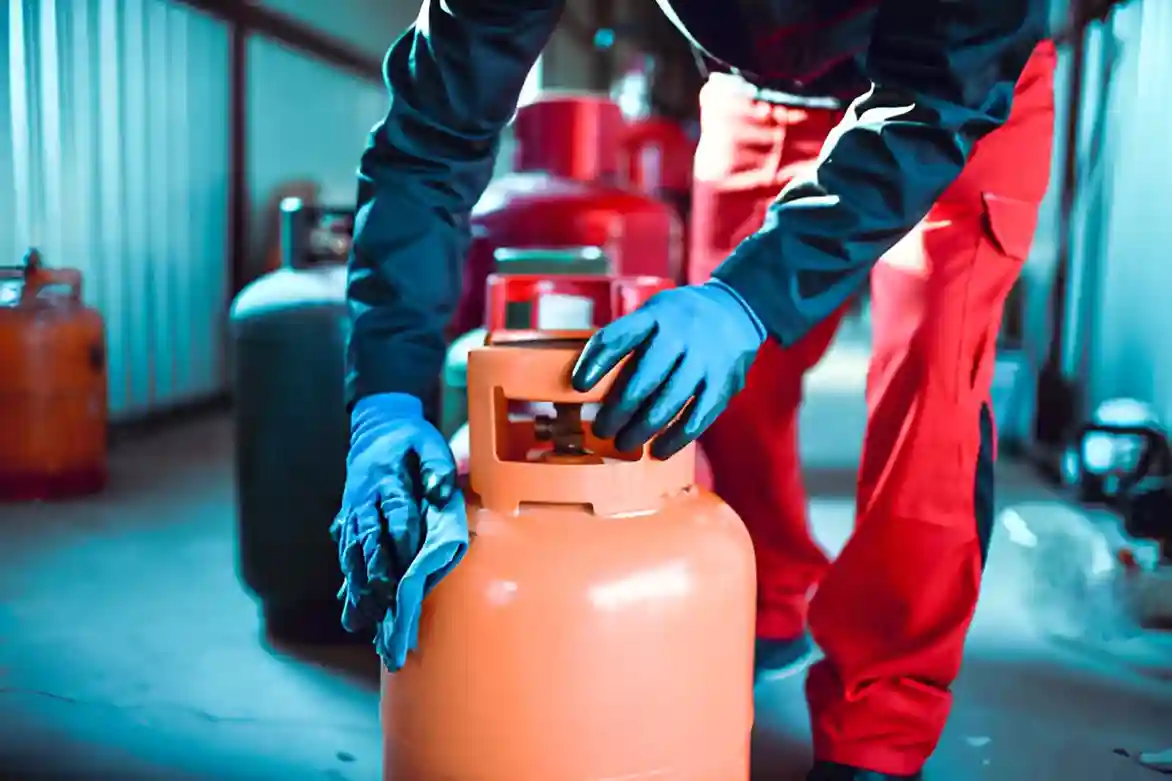
Preparing Your Property for a Gas Safety Certificate and Boiler Service
Preparing a property for a Gas Safety Certificate and boiler service requires careful attention to detail to guarantee a smooth process. Homeowners should take specific steps to verify both safety and compliance.
- Clear Access: Make sure the boiler and gas appliances are easily accessible. This allows the engineer to conduct a thorough inspection without unnecessary delays.
- Check for Leaks: Look for any signs of gas leaks, such as a distinctive smell or hissing sounds. Addressing these issues beforehand can prevent dangerous situations.
- Gather Documentation: Compile any previous service records or installation documents. This information can aid the engineer in evaluating the current state of the system.
Frequently Asked Questions
A boiler service should typically be conducted annually to guarantee efficiency and safety. Regular maintenance helps identify potential issues early, prolonging the boiler’s lifespan and guaranteeing compliance with safety standards for household heating systems.
A qualified gas engineer should possess relevant certifications, such as the Gas Safe Register accreditation, ensuring they are trained and competent in handling gas appliances. Additionally, experience in boiler servicing enhances their reliability and expertise.
No, individuals cannot perform their own gas safety checks legally. Only qualified and registered gas engineers possess the necessary training and certification to conduct these checks, ensuring safety and compliance with regulations.
The costs associated with a gas safety certificate typically range from £50 to £100, depending on the provider and geographical location. Additional fees may apply for multiple appliances or further inspections required by regulations.
If a boiler fails the safety check, the engineer will typically issue a notice prohibiting use. Repairs or replacements may be necessary to guarantee compliance with safety standards, protecting occupants from potential hazards associated with faulty equipment.
Conclusion
In conclusion, understanding the significance of a Gas Safety Certificate and boiler service is essential for ensuring safety and efficiency in both residential and commercial properties. These services not only comply with legal requirements, especially for landlords, but also protect tenants and homeowners from potential hazards. By being informed and proactive about gas safety checks and boiler maintenance, individuals can foster a secure living environment and extend the lifespan of their gas appliances.
About the Author: Atia Amin
Related Posts
Get Social
Recent Posts
- Electrical Diagnostic London: How Professional Testing Keeps Your Property Safe and Compliant
- Asbestos Management Survey London: Update Your Property Records
- Gas Safety Certificate London: Why Regular Checks Save Money Long-Term
- FRA London Explained: How a Professional Fire Risk Assessment Keeps You Compliant and Safe
- When a New Tenancy Requires Your EICR Certificate London Renewal


